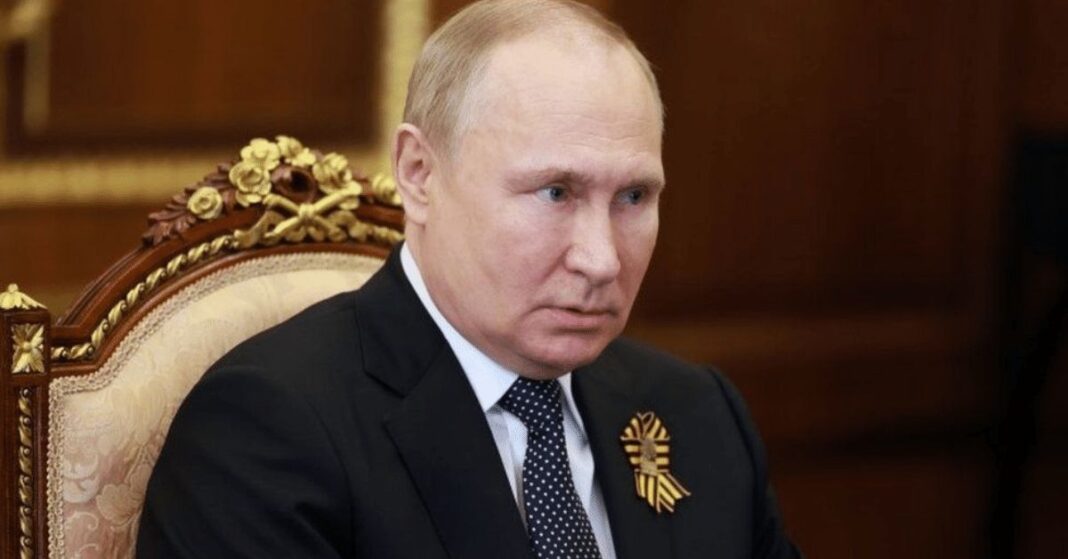Russia Ukraine Putin
The Russian invasion of Ukraine failed spectacularly, exposing surprising weaknesses in the military strength of a nation as massive as Russia. The Russians failed to crush Ukraine’s outgunned and outnumbered army. They also failed to take Donetsk and Crimea. If Russia had been able to seize these cities quickly, it would have ended the conflict.
Russia’s failure to seize Kyiv exposed surprising weaknesses in a military power like Russia
While Russia’s military might be able to destroy nearly anything in the Ukraine, it does not possess the capacity to invade and occupy it. With just under 200,000 soldiers deployed across a country the size of France, the Russians would need a numerical superiority of at least four to one to be able to conduct a decisive offensive operation. Whether the Russian military can do so depends on how Ukraine’s government responds.
While Russia failed to seize Kyiv, it also failed to deploy its full force to the battle. As a result, NATO funneled a significant amount of arms into the area. These arms bolstered the ability of Ukrainian defenders to harm the aggressor. In fact, Western anti-tank and anti-aircraft systems rendered fifteen to twenty percent of the Russian battalions completely ineffective.
The next stage in this war may depend on Russia’s political-economic strategy. Russia has already demanded that Ukraine not join NATO. It also may view Ukraine as a threat to its democracy. In addition to destroying Kyiv physically, Russia aims to disrupt Ukraine’s economy. Its objective is not simply to eliminate Ukraine’s population, but to crush Ukraine’s hopes and spirit.
If Putin is not yet convinced that the costs of war are greater than its benefits, he may decide to move on to NATO’s nuclear weapons and nuclear forces. This is unlikely to end well for Russia, but it will be hard for it not to try and escalate the war to nuclear weapons.
It has been a decade since Ukraine first talked about joining NATO, but it remains a non-member. In the meantime, the alliance isn’t committed to deter an attack against the country, even if Ukraine becomes a member. That means Russia is taking advantage of a gray area, one that Putin took advantage of.
Russia’s failure to quickly crush Ukraine’s outgunned and outnumbered army
Despite Russian promises to crush the Ukrainian army within a few days, the Russian military has failed to accomplish the goal. The failure of the Russian army to quickly crush Ukraine’s outgunned and the outnumbered army has several important implications. For one, it reveals a glaring flaw in Russia’s military: its size. While it is too small to quickly crush the outgunned and outnumbered Ukrainian army, it has been able to hold out against the opposition forces for several days and weeks.
Russia’s military may be exhausted by the end of the year. Moreover, the sanctions imposed by the West have prevented Russia from producing new weapons. But Russia’s political-economic strategy may be decisive in the next phase of the war. For example, the Russian government aims to destroy Ukraine’s economy, in addition to its physical destruction. This is a more long-term strategy than a quick and efficient crushing of Ukraine’s army.
Ukraine’s outnumbered and outgunned army faced a huge challenge, and the Russians were ill-prepared to meet the challenge. They were ineffective in combining air and land operations, misjudged Ukraine’s ability to defend its skies, and bungled basic military functions.
The failure of Russia to quickly crush Ukraine’s outgunned army could have catastrophic consequences for the Russian government. As a result, the Russian military’s massive casualties could force the Russian authorities to consider conscription. The high casualty rate would also undermine Ukraine’s ability to quickly build an experienced officer corps.
Russia has failed to quickly crush Ukraine’s outgunned and outnumbered army, despite the fact that it has nearly one million men in its ranks. About 30%-35% of these men are fighting soldiers. The rests are support and maintenance troops. However, the boosted manpower doesn’t yet include the necessary equipment for large offensives.
Russia’s failure to seize Crimea
Putin’s failure to seize Crimea can be seen in two ways. First, it shows that the intervention was not a systematic expansionist project. If Putin’s goal was to expand Russian power, he would have appointed a local satrap and chosen annexation or autonomy as the option. Second, he would have built a bridge to the target territory.
A third explanation for Putin’s failure to seize Crimea is that he had little time to prepare. The annexation would have involved building a bridge over the Kerch Strait and establishing a Russian presence there. This scenario would have required a month’s notice. If Putin had wanted to seize Crimea, he would have used a pretext, such as an intelligence report, to get the ball rolling.
In the short term, the failure of Putin to seize Crimea could prove to be a catalyst for secessionist movements in the pro-Russian south. According to the Guardian, a recent report shows that pro-Russian activists are calling for secession. In a separate report, the Kharkiv Human Rights Protection Group and Amnesty International cited the case of a Crimean Tatar activist.
In addition to Russian troops, Russia’s military deployed troops on the Crimean peninsula. They positioned security checkpoints across the peninsula, separating the peninsula from the Ukrainian mainland. They also replaced Ukrainian television stations with some Russian channels. They also took control of the local economy. A key part of the Russian military’s plan was to stop Ukraine’s military from deploying its forces in Crimea.
This decision was a key step toward stabilizing the situation on the peninsula. The Russian military massed forces near the eastern border of Ukraine in a bid to prevent a further breakup. It also boosted tensions in the region, which fueled ethnic divisions. And in the Donetsk and Luhansk regions, pro-Russian separatists declared independence from Ukraine.
Russia’s failure to seize Donetsk
The recent Russian ground offensive in eastern Ukraine has failed to capture three of the main targets. President Vladimir Putin has alleged that sanctions against his country have prevented him from achieving his goals in the east. In the past, Russia has sought to annex Kyiv and Kharkiv but has since abandoned those plans. Instead, he has focused his efforts on the disputed Donetsk and Luhansk regions.
Despite its efforts, Russian forces have yet to capture Donetsk, a strategically important Ukrainian city. The Kremlin has urged its troops to seize the entire oblast by the summer. However, the cities of Luhansk and Donetsk remain firmly in Ukrainian hands.
If Russia does succeed in capturing the city, it will effectively control the entire region. This area is largely Russian-speaking and has a significant coal industry. It would also strengthen Russia’s control over southeast Ukraine and further cement its “land bridge” with Crimea.
While Russia hopes to grind down Ukrainian resistance, Ukraine may struggle to launch effective offensives. The Ukrainians may lack armored and infantry formations. Additionally, flare-ups in other areas could disrupt Russian efforts to seize Donetsk. Ukraine has already regained Snake Island and has experienced some success in counter-offensives near Kherson.
In the past few weeks, Russia has lost a huge number of soldiers and has failed to capture the city of Donetsk. Western officials say this is because Russian forces have been under-equipped to handle the fighting. Western governments have criticized Russia’s actions as fascist and claim that they are only acting in self-interest. While Putin has repeatedly claimed to be defending Ukraine, the evidence shows otherwise.
The war in the Donbas could stretch into the fall and winter. Analysts are already weighing the long-term consequences of the war. There is a possibility that Russia may push its troops towards the banks of the Dnipro River, which bisects Ukraine from north to south. This would greatly appall the Western world and prolong the war. Nevertheless, NATO nations have vowed to support Ukraine regardless of the outcome of the conflict.
Russia’s failure to seize Kharkiv exposed surprising weaknesses in a military power like Russia
The failure of Russia to capture Kharkiv has raised many questions about its capabilities. In particular, the war’s initial outcomes have demonstrated that Russia’s armed forces are a far more vulnerable force than Western analysts believed. The Russian military’s shortcomings are often overlooked, despite its superior nuclear weapons.
The Russian military faced considerable logistical challenges, resulting in serious problems in this operation. In the early stages of the conflict, the army was unable to move supplies quickly and efficiently. In addition, supply lines failed to keep up with the lengthy combat pushes, and logistics vehicles were not adequately protected.
As a military power, Russia’s failure to seize Kharkov reveals many weaknesses in its strategy. It assumed that its forces and equipment would perform as advertised. It also assumed that its plans were sound and that it would follow the most probable course of action. This assumption was unfounded.
In 2014, Russia’s failure to seize Kharkov demonstrates that it can not be a one-man show. A military power with the resources and the desire to make a significant impact on its surroundings cannot expect to achieve that goal in a single day. Instead, it must carefully plan its approach to ensure it gets what it wants.
In a war like Ukraine, Russia may have to use a hybrid strategy that involves three distinct military groups. One is the regular Russian army, which could emulate the French army in 1917. Another is the auxiliary forces.
Related Articles: Joe Biden, a Democrat, Is a Good Man?
Elon Musk’s First Cousin, Lyndon Rive
Fun Facts About Canadian Prime Minister Justin Trudeau
Can SpaceX Compete With Government-Owned Companies?
Elon Musk’s Dad Disses His Billionaire Son Says He’s Not Proud Of Him


